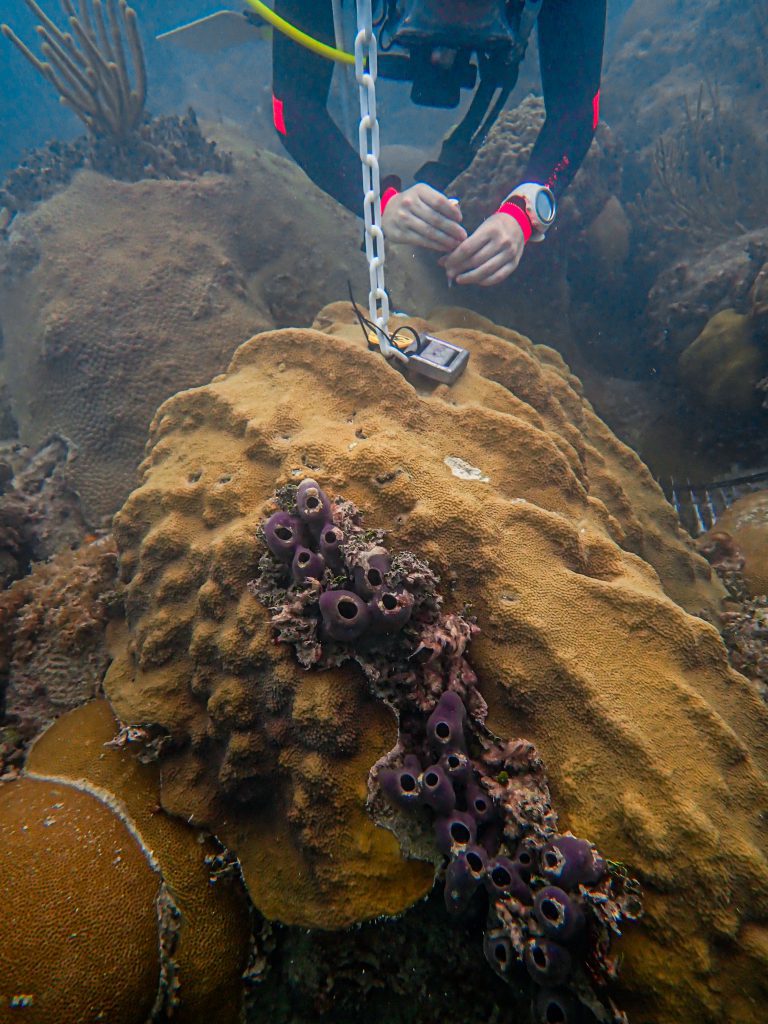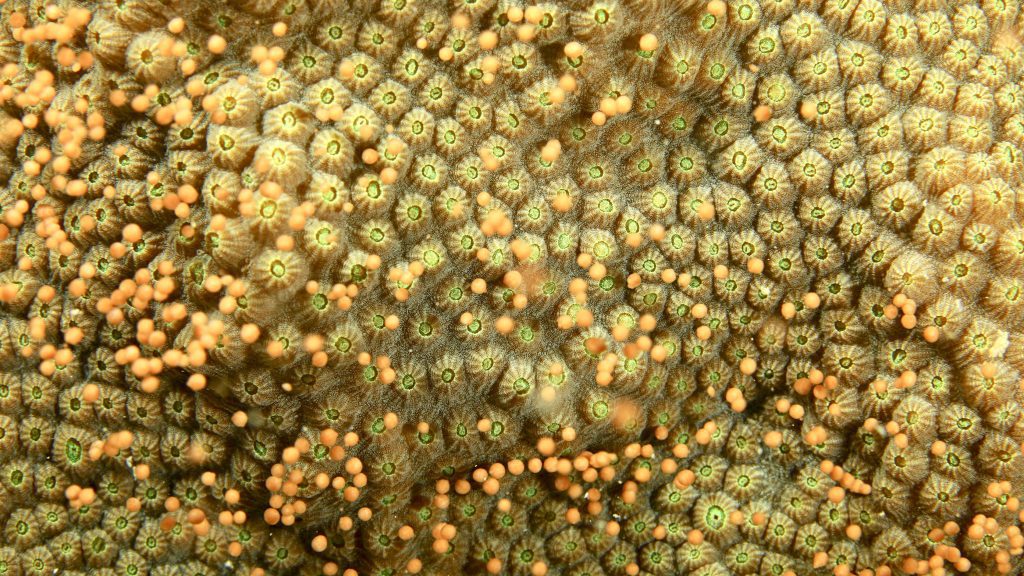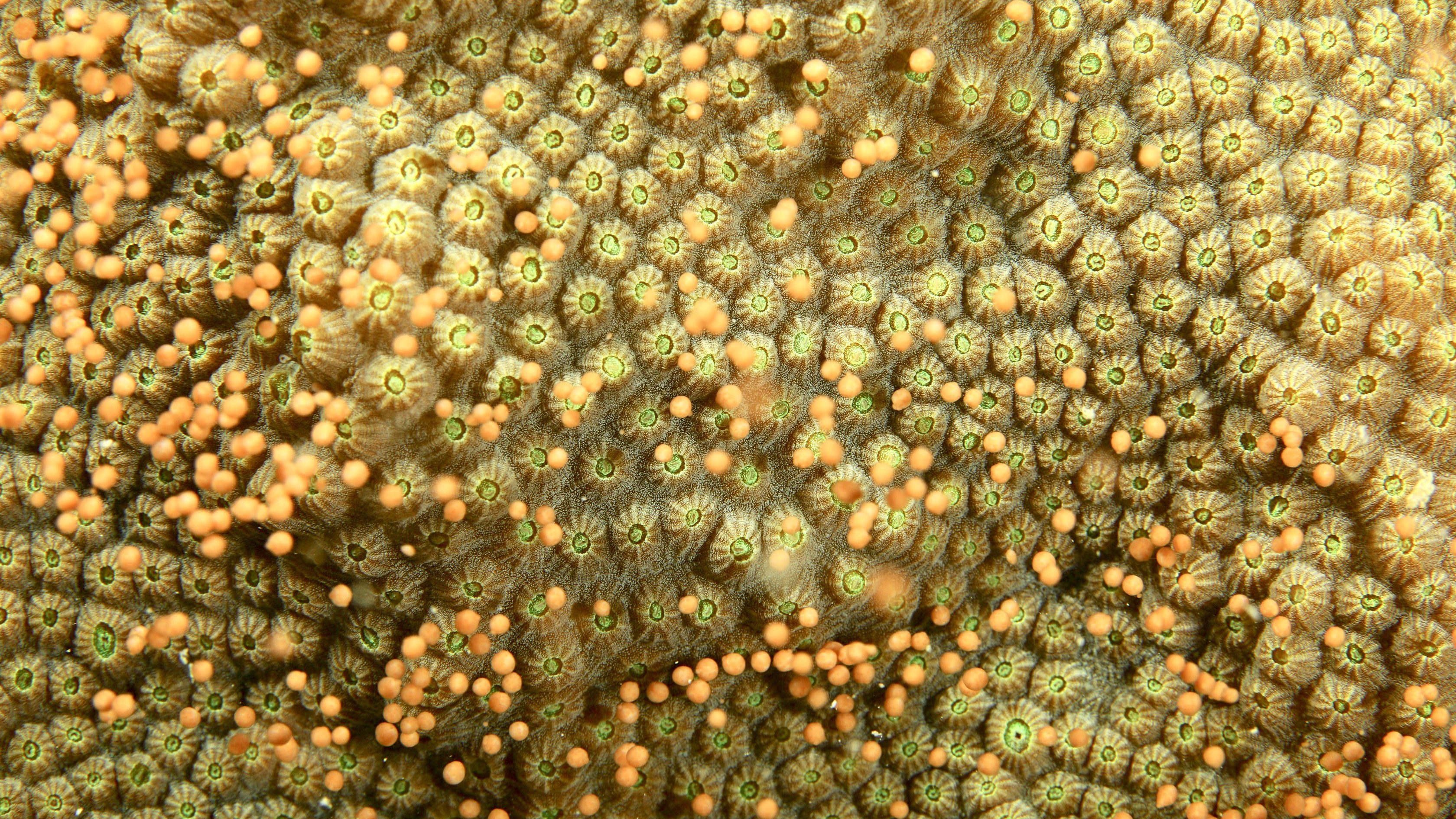Last week AOML and CIMAS coral researchers, Graham Kolodziej, Anderson Mayfield, and Derek Manzello, entered the ocean off of the Upper Florida Keys to collect tiny floating balls being released from the protected mountainous star coral (Orbicella faveolata). Taking place shortly after moonrise, the spawning process is a visually beautiful part of the circle of life for corals, releasing gametes into the ocean water to become fertilized and eventually settle to create new stony coral colonies. The collected gametes will support AOML’s ‘Omics research, conducted with NOAA partners from the Southeast Fisheries Science Center.

The goal of their research is two-fold: to understand the molecular basis of coral resilience to high temperatures and to develop the technological capacity to predict which corals will bleach and which will not. The location from which the gametes were collected, Cheeca Rocks, is an inshore patch reef that has exhibited a marked resilience to recent bleaching and has maintained high coral cover (~30%) and a large population of the threatened coral species. Previous research has shown an increased thermal tolerance of inshore corals, observations have been made which demonstrate these corals being able to tolerate temperatures up to 1 degree Celcius more than the offshore corals without bleaching. This makes these coral genotypes important for the restoration of bleaching impacted areas.

The larvae of the mountainous star coral lack the characteristic algal symbionts until settlement. These experiments will provide information on how much of the thermal tolerance of the inshore corals is directly due to the role of the coral host as opposed to the algal symbiont and what genes are responsible for this heat resilience. Our scientists will also be working closely with a team NOAA Fisheries to try and create hybrid corals with high heat tolerance in addition to the traits that have allowed the offshore corals to thrive before recent warming.
